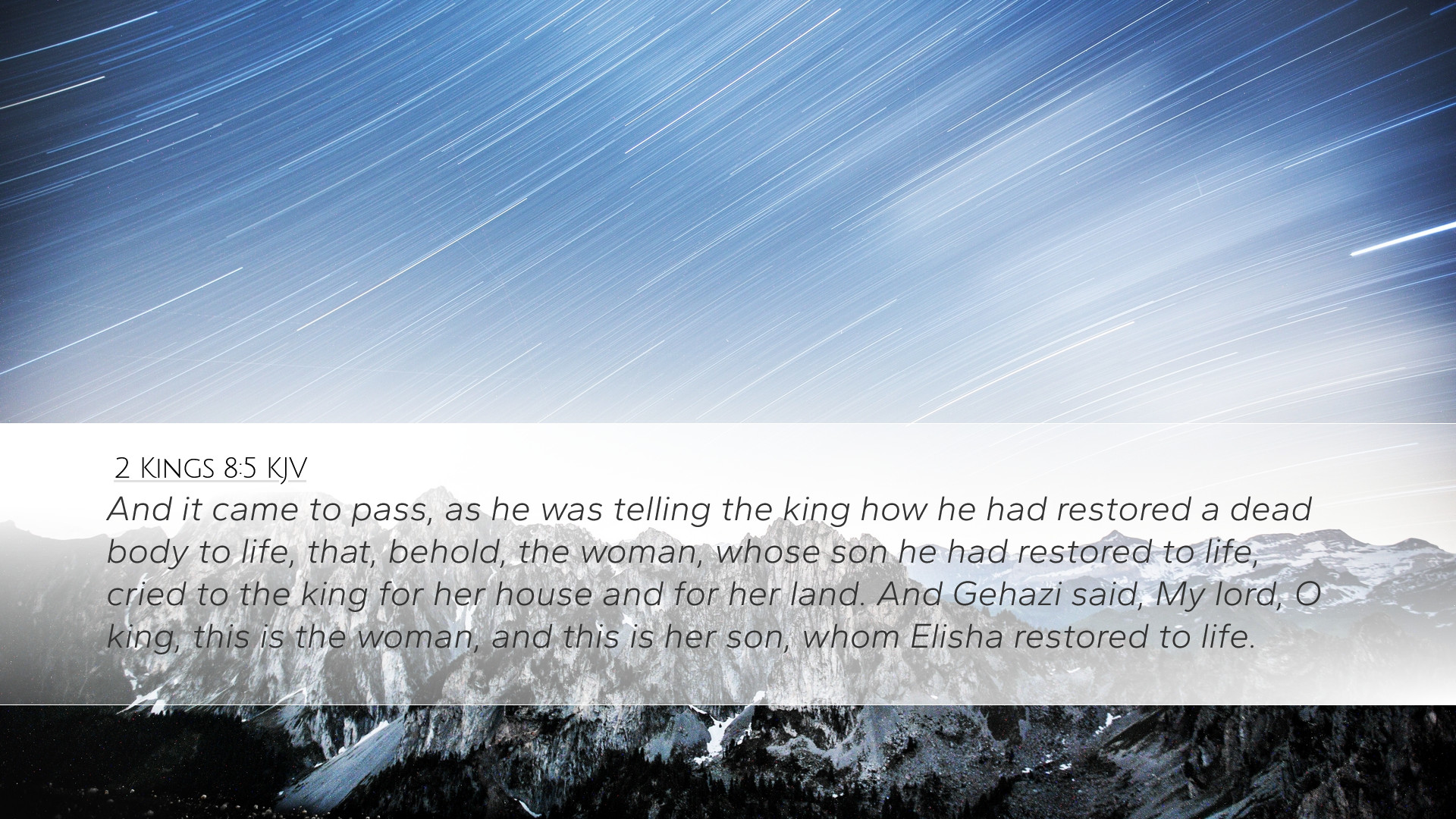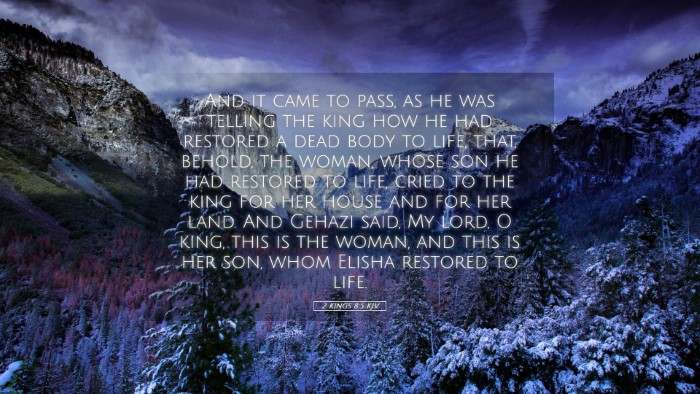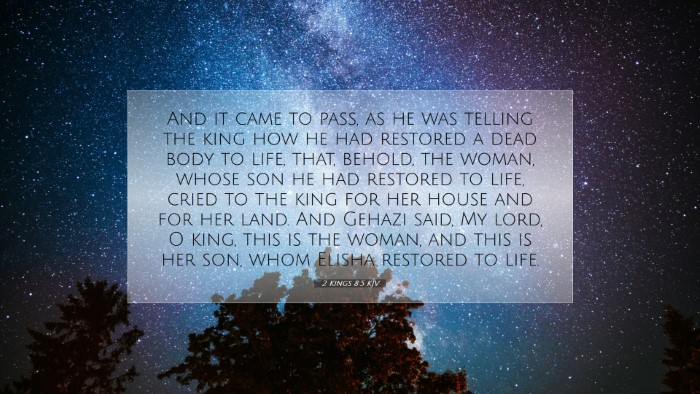Commentary on 2 Kings 8:5
Verse: "And it came to pass, as he was telling the king how he had restored a dead body to life, that, behold, the woman whose son he had restored to life cried to the king for her house and for her land." (2 Kings 8:5, KJV)
Introduction
The narrative of 2 Kings 8:5 showcases elements of divine intervention, human need, and the intricate workings of God’s providence in the lives of His people. It tells the story of a woman who was profoundly affected by Elisha's ministry, interweaving themes of restoration, justice, and God’s care for the vulnerable.
Contextual Analysis
This verse falls within a larger narrative that illustrates the continued ministry of the prophet Elisha. After the miraculous events described previously, including the raising of the Shunammite woman's son (2 Kings 4:32-37), the woman returns seeking restoration of her lost inheritance as a result of a famine.
The historical backdrop is crucial, as it was common for a prophet to have a significant impact on the earthly affairs of Israel. The king's court is depicted as a space where divine narratives intersect with societal matters.
Theological Insights
Theologically, this verse can be understood from several vital points:
- Divine Sovereignty: The woman’s appeal to the king coincides with the recounting of Elisha's miraculous deed, indicating the sovereignty of God over life and death as well as personal circumstances.
- Restoration: The narrative emphasizes God’s commitment to restoring what is lost and recognizing the plight of those in need.
- Advocacy: Elisha’s actions become a means through which the vulnerable are given a voice, emphasizing the role of godly leaders in advocating for justice.
Commentary from Public Domain Sources
Matthew Henry
Henry emphasizes the providence of God that not only raises the dead but also ensures the needs of those who have been touched by His grace are met. He notes how the story demonstrates that although trials may come, God’s faithfulness is ever-present. The timing of the woman’s return to appeal for her land highlights attributes of God's divine timing.
Albert Barnes
Barnes elaborates on the significance of the Shunammite woman's petition. He argues that this moment serves not just as a plea for personal restitution, but connects back to the wider narrative of God's support for His people through prophetic leadership. Barnes highlights the importance of acknowledging the source of blessings as the woman approaches the king informed by the miraculous works of Elisha, thus emphasizing faithful testimony.
Adam Clarke
Clarke provides detailed insight into the socio-political elements at play. He reminds readers that during the famine, many had been displaced and lost properties. The woman’s plea reflects a broader condition experienced by many as God’s providential care manifests through Elisha’s ministry. Clarke points out that this moment of restoration signifies a loyal adherence to God's promise to care for His people, demonstrating faith in action.
Practical Applications
The narrative of 2 Kings 8:5 offers several practical applications:
- Importance of Advocacy: Believers are reminded of their role to advocate for those who suffer loss, echoing the Shunammite's boldness to seek justice.
- Faith Called to Action: Like the Shunammite woman, individuals are urged to bring their needs before God and those in authority, trusting that God is at work in their circumstances.
- Recognition of God’s Provision: The narrative teaches that what God provides, He expects us to acknowledge. The miraculous provisions of God should lead to grateful responses from His people.
Conclusion
In summary, 2 Kings 8:5 serves as a poignant reminder of God’s ongoing work in the world through His servants, and the importance of justice, restoration, and the acknowledgement of God’s providential care in our lives. The miraculous narratives of the Old Testament not only present the power of God but also reflect his intimate concern for humanity.


